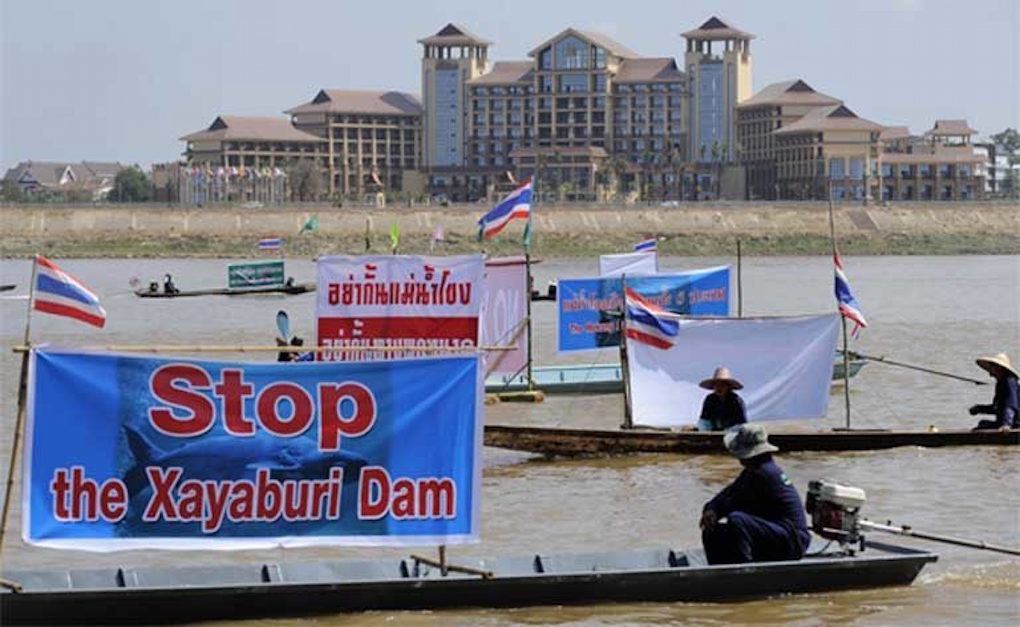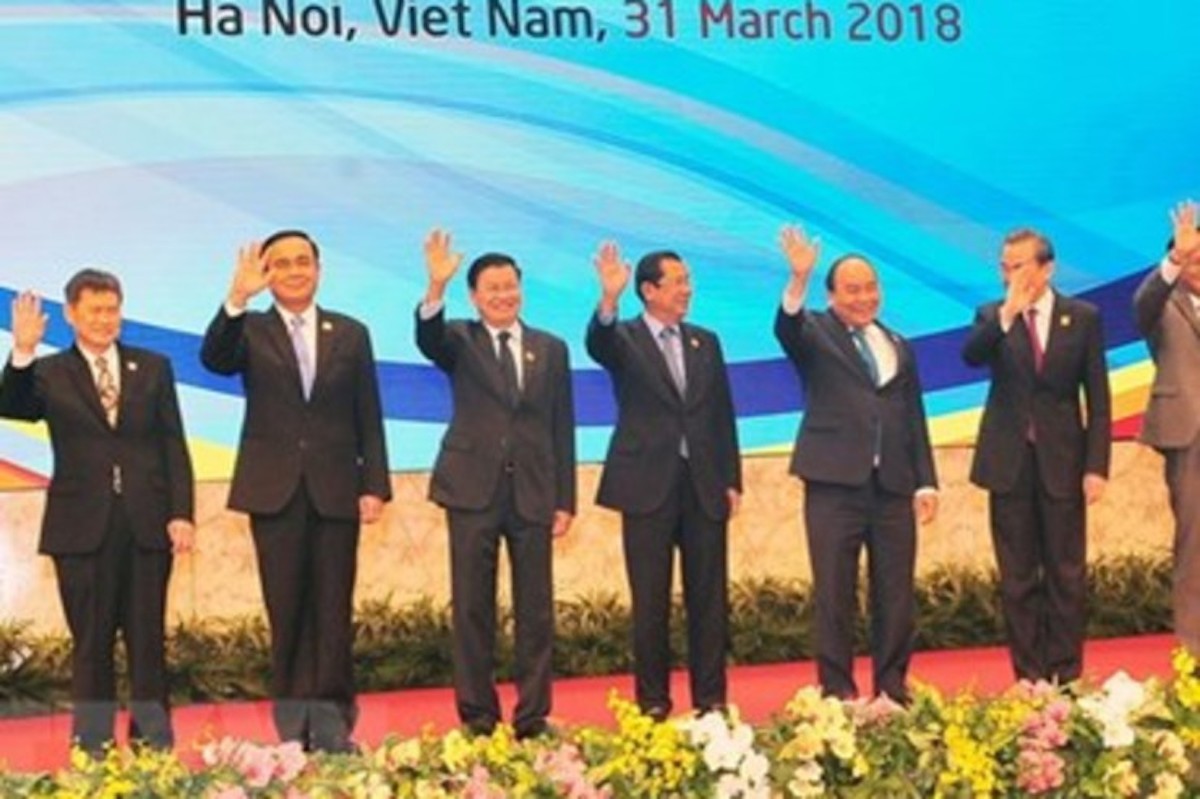“Water is liquid capital” proclaims the lead-out of World Wide Fund for Nature’s new report “The Role of the Mekong in the Economy.” Released earlier this month at the 2016 Mekong Forum on Water, Food and Energy, the report’s findings stress that despite the Mekong’s central role to the economies of countries in the Lower Mekong Basin, river management decisions are not being coordinated with long term economic development, nor planning efforts. Unless decision makers start considering the connections between water choices and economic development, the region’s prosperity seems destined for trouble.
Absent momentum toward planning integration, both nationally and regionally, the report warns that disaggregated decisions relating to hydropower development, industrial expansion, urbanization, fisheries and agriculture—all intertwined with the Mekong—could collectively threaten economic sustainability and resilience for decades to come.
“Governments, companies and communities in the Mekong region must come together to develop joint solutions to water governance challenges,” said Stewart Orr, Leader of WWF’s Water Practice. “These challenges are difficult but not unsolvable. Mekong decision makers can draw on good examples from around the world of using public-private partnerships and financial innovation to effectively conserve natural resources for everyone’s benefit.”
New report “The Role of the Mekong in the Economy” released at the 2016 Mekong Forum on Water, Food and Energy
The report’s authors, Pegasas Consulting, say that such “River in the Economy” (RitE) reports are unique in that they help focus on how to build bridges across sectors and between resource and economic planning. Employing strategies that embrace this interconnectedness, particularly amongst governments, businesses and development institutions is paramount, the report says, and most critically “…regional planning integration is the only option to ensure optimal sustainable growth in the Mekong Basin.”
Several observers, each with decades of development experience along the Lower Mekong, however, cautioned that wrapping the challenge to, and opportunities for, sustainable stewardship of the Mekong in such economic packaging may be counterproductive. Acknowledging that the primary actors in the report’s analysis and audience for its findings are governments, business leaders and development institutions, they argue that such messaging reinforces a development paradigm that has yet to demonstrate an ability to provide economic and social security for resource-dependent communities who are the majority of river users.

Niwat Roykaew of Chiang Khong conservation group (credit: Post Today)
The premise that water is capital is dangerous, warned Niwat Roykaew (Kru Tee), a community leader who established the Mekong School near the river’s banks in the town of Chiang Khong, in Northern Thailand. “Water is central to all life. It’s cycle from the sea to the clouds to our fields and streams is not something that can be realistically quantified on accounting ledgers. And how do you place a value on all the microbes, insects, fish, birds and mammals of this most unique of river ecosystem when we don’t even know all of what’s here and the role each plays in maintaining the whole? It’s this fundamental disconnect, this bifurcation, of our relationship with ecosystems and these economies that in large part lies at the heart of the very problem the report attempts to address.”
Indeed, though the report offers many anecdotes surrounding finance, investment and public-private partnerships, the term ecology is virtually absent from its 160 pages of text. Kru Tee fears the report means further manifestation of the widening gap in knowledge and solutions from ancestors of the basin’s original inhabitants along the river, to more top-down advancement of ideas and approaches from outside experts whose agendas are not so clear.
“Many of us have longtime harbored a much different approach and less consumptive relationship with the Mekong,” added Kru Tee. “But possibly since our development model and vision for the basin does not fit those advanced by the governments, there’s no room for it in the report’s approach.”

Fisherman testing his luck behind a dam on the Mekong (credit: saigoneers.org)
Naruemon Thabchumphol, director of the International Development program at Chulalongkorn University echoes Kru Tee concerns. She adds that the lack of legitimate mechanisms for river dependent people to have any meaningful role in shaping the Mekong’s governance, and by extension its economic development priorities, represents a fundamental missing ingredient to anyone’s definition of sustainability.
“Constant protests by local communities are evidence of failure of the current development model in the Mekong basin,” Narumon pointed out. “It has been proven that nation state and market mechanism are not the right managers for common resources like the Mekong. It’s discouraging that WWF’s report is still betting on the same cards.”
Assoc Prof of Anthropology, Pinkaew Luangaramsri of Chiang Mai University, fears that so much reliance on the private sector to help shape and drive sustainability is unrealistic. “The report listed recommendations such as water pricing and taxing. These would only hurt poor farmers further. Note the falling rice prices in Thailand this year. How could you expect farmers to pay for water? Moreover, the concept of benefit-sharing by the major corporate players in the agricultural sector with farmers seems pretty far fetched.”
Another elephant in the room, said Pinkaew is that economics do not operate in a vacuum. Economies are largely shaped by their political landscape. The twenty year history of the Mekong River Commission and its inability to foster the kind of culture of cooperation and planning called for in the report is harsh evidence that the impediments to change are not so much a lack of knowledge about economic and ecological trade-offs, but political will. “Given that there’s nothing in the report about how to overcome the political dynamics, particularly China’s dominance, much of what the report calls for may be wishful thinking,” concludes Pinkaew.

A Khmer woman selects her catches of the day with her from her daughter (credit: Roengchai Kongmuang/SEI)
WWF’s emphasis on market approaches is not limited to the Mekong, but drives much of its global strategy. Depicting water, rivers, oceans forests and minerals as Natural Capital and developing Conservation Finance mechanism to help manage them are themes that underpin much of the organization’s work. And the concerns surrounding such strategies too are not confined to the Mekong, but raise the general question of how exactly does the conservation of natural capital equate with the conservation of nature?
Regardless, the Economy in the Mekong report is sure to raise the profile of the economic costs of current development to business and government audiences who may think primarily in short-term monetary terms. If cumulative impacts of dams and other development are not carefully considered, the very foundation of the economy is at risk. Highlighting how mismanagement will damage the long-term bottom line for everyone, may create space to address long-term impacts and full community participatory solutions.
As Marc Goichot, WWF-Greater Mekong Water Lead, added while launching the report, “We need to understand all the benefits the Mekong River provides and make sure everyone has a voice in water governance, so together we can conserve the ecosystem that underpins the economy and ensure a prosperous future for all.”
Lead photo: Workers in Chiang Saen town on the Mekong, northern Thailand, unloading cargo from a Chinese ship. Credit: Roengchai Kongmuang/SEI






